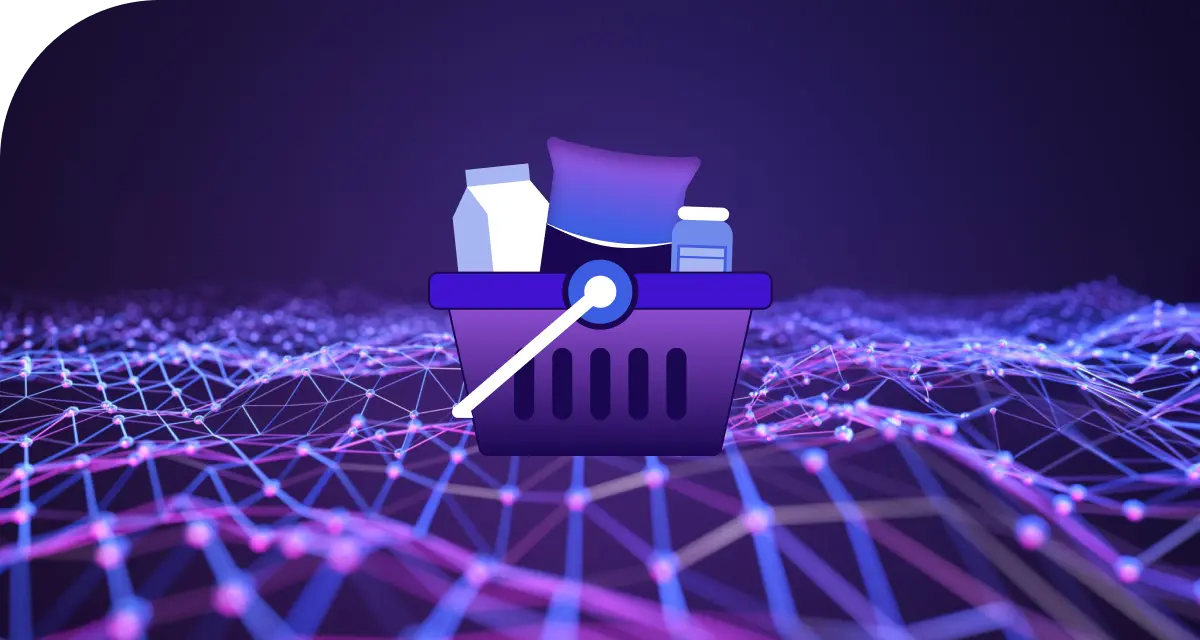Rewiring Digital Transformation in the CPG Industry

The digital transformation in the CPG industry affects all the industry’s aspects – production, supply chain, marketing, and customer experience. But how can companies take advantage of this transformation to grow and succeed in the dynamic market?
In this article, we will discuss some strategies that CPG companies can use to rewire their digital transformation and stay ahead of the competition.
The digital imperative
CPG companies must undergo digital transformation to remain competitive and meet the evolving needs of their customers.
To lay the groundwork for success, companies must first take a deep dive into their existing technology stack.
This audit should evaluate current investments and their alignment with business objectives. By identifying gaps and areas for improvement, CPGs can prioritize investments.
But often, the allure of shiny new technology masks a deeper reality: the human element that can cause digital transformation efforts to be stillborn. The most significant barrier to successful transformation lies not in adoption, but in adaptation.
It’s tempting to view digital and AI advancements as mere tools, add-ons to existing systems. Yet, their true potential remains dormant without a willingness to re-evaluate and reshape the very core of how a company operates.
This means looking beyond upgrades and embracing an approach that includes everything from internal processes and workflows to the very culture of the organization.
It’s a challenging path, one that requires introspection, courage, and a commitment to long-term change. But it’s the only way to ensure that these new tools aren’t just shiny distractions, but catalysts for lasting, meaningful growth.
AI: The game changer in CPG evolution
AI and generative AI (GenAI) have added fuel to the digital transformation fire, accelerating innovation, reshaping industries, and redefining the boundaries.
AI isn’t about incremental adjustments; it’s a seismic shift that will reshape entire industries. Yet, implementing bespoke AI solutions from scratch is a complex and resource-intensive undertaking for most companies.
To navigate this new terrain, CPG companies must forge alliances with AI-focused tech providers. These partners offer the expertise, resources, and solutions CPGs need to leapfrog the competition.
Such partnerships can catapult CPGs into a new era of innovation, efficiency, and customer-centricity. By collaborating with AI specialists, CPGs can:
Accelerate digital transformation: Tap into the tech partner’s expertise to fast-track the adoption and integration of AI solutions, streamlining operations and unlocking new growth opportunities as early as possible.
Drive innovation: Leverage the partner’s cutting-edge AI capabilities to develop and deploy innovative products, services, and experiences that differentiate your business in the market and create new revenue streams.
Gain a competitive edge: Stay ahead of the curve by accessing the latest AI technologies and insights through the tech partner’s continuous research and development efforts, differentiating themselves in the marketplace and gaining a competitive edge.
This isn’t just about adopting technology; it’s about embracing a new paradigm of collaboration and innovation. By forging partnerships with AI experts, CPG companies can not only survive this revolution but thrive in it, creating a future where AI-powered solutions drive unprecedented growth and success.
Key areas for CPG transformation
The integration of AI into the food and beverage industry is already yielding tangible results in key areas, paving the way for a more innovative and consumer-centric future:
Personalized product development: AI-powered algorithms can analyze vast datasets of consumer preferences, dietary needs, and emerging trends. This enables CPG companies to create hyper-personalized products that cater to individual tastes and preferences, fostering deeper connections with consumers.
Predictive demand forecasting: Gone are the days of relying on historical sales data and gut instincts. AI-powered forecasting models can analyze a multitude of variables—from weather patterns to social media sentiment—to predict consumer demand with unprecedented accuracy. This allows CPG companies to ensure that the right products are on the shelves at the right time.
Enhanced customer engagement: AI-powered chatbots, virtual assistants, and personalized recommendation engines are transforming the way CPG companies interact with consumers. These tools can provide instant customer support, offer personalized product suggestions, and gather valuable feedback, creating a seamless and engaging customer experience.
These are just a few examples of how AI is revolutionizing the food and beverage industry. As technology continues to advance, we can expect even more innovative and transformative applications to emerge, reshaping the way we produce, market, and consume food and beverages. The companies that embrace this transformation will be the ones that thrive in the years to come.
The AI imperative: Adapt or be left behind
The food and beverage industry is at a pivotal juncture. AI is not merely a trend; it’s a fundamental shift that will redefine the winners and losers in the market. CPG companies that embrace AI-powered partnerships will be the ones that thrive, creating personalized products, optimizing their supply chains, and forging deeper connections with their consumers.
The question is not whether AI will transform the industry, but rather, who will lead that transformation. Will your company seize the opportunity to harness the power of AI and shape the future of food and beverage, or will you watch from the sidelines as your competitors forge ahead?

